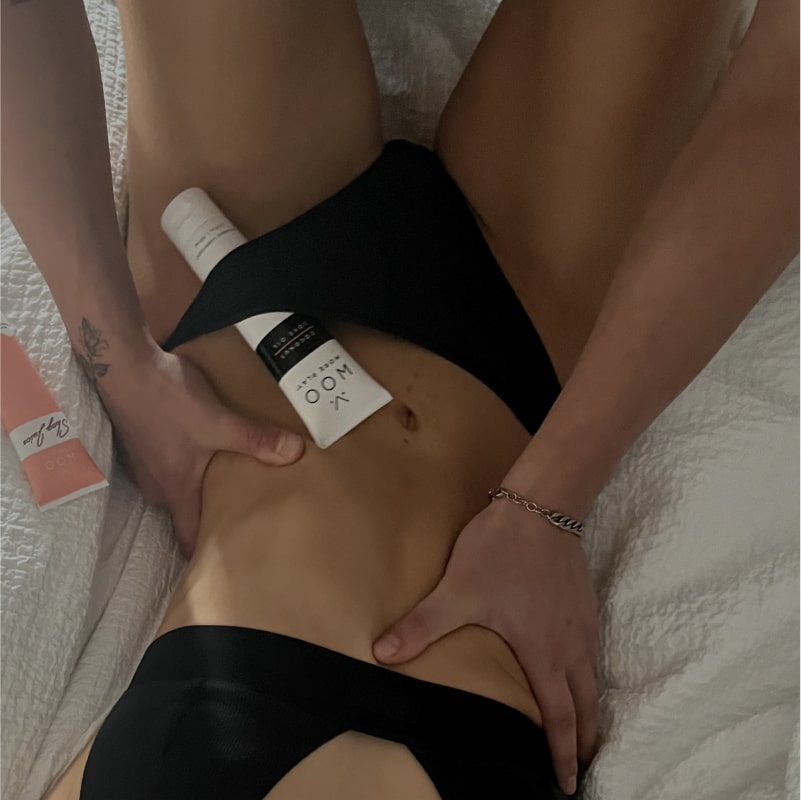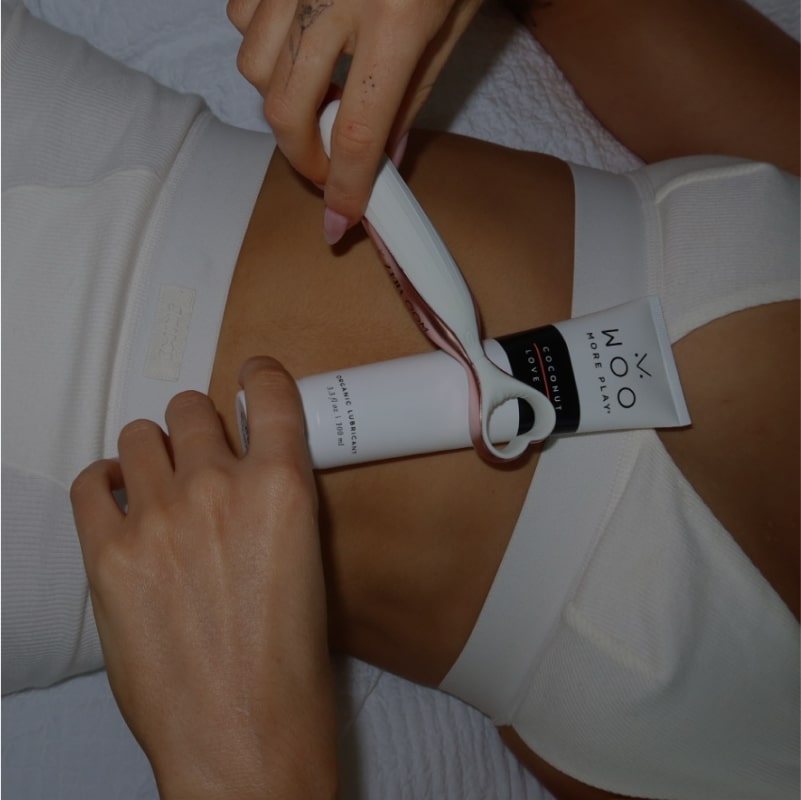If you've ever let out a little performative gasp while staring at the ceiling, you're not alone.
Faking orgasms has become so culturally normalized that we rarely stop to ask why it's happening. Is it pressure? Misinformation? A polite exit strategy? A survival tactic? Yes. And sometimes, all at once.
This blog isn't about shaming those who have faked it (it’s usually for a reason, and many of those reasons make sense). It's about understanding the "why" so we can create better, more honest, and way more pleasurable experiences.
So... why do women fake orgasms? Let’s get into it.
Key Takeaways
-
Faking orgasm is common, more common than most realize.
-
The reasons range from avoiding conflict to protecting a partner’s ego to speeding things along.
-
Cultural pressure, lack of proper sex education, and unequal pleasure norms play major roles.
-
Women often fake when they feel disconnected from their own pleasure.
-
Real pleasure is possible with honest communication, the right tools, and a little self-exploration.

The Performance of Pleasure
Let’s call it what it is: sex has a script. Clothes come off. Things heat up. Orgasm. Curtain call.
That script wasn’t written by women, and it wasn’t written with them in mind. And yet, many of us feel compelled to follow it, faking the grand finale when the real thing feels... far away.
Studies show that anywhere from 50-70% of women have faked an orgasm at least once. That’s not a small number. And the reasons are layered.
Some fake it to protect their partner’s feelings. Others want to avoid awkwardness, tension, or the never-ending "are you close yet?" loop. And some women fake because they've been faking since the beginning and don’t know how not to.
Sometimes, it feels easier to moan and move on.
But here’s the thing: faking orgasm disconnects you from your body, your pleasure, and your power. And while it's totally valid to have done it (zero judgment here), there's so much more on the other side of honesty.
Why Women Fake Orgasms: Common (and Complicated) Reasons
1. They feel responsible for their partner’s ego.
No one wants to feel like the "difficult one." Many women have internalized the idea that their partner’s pleasure is priority number one, even if it means sacrificing their own experience to keep things moving smoothly.
2. It’s a shortcut to the end.
Let’s be real. Sometimes you’re tired. Or distracted. Or feeling kind of meh. And while you’re not totally uninterested, you’re definitely not on the edge of bliss. So you fake it, wrap it up, and call it a night.
3. They’re unsure what actually brings them pleasure.
Sex ed failed us. Pop culture misled us. And a lot of people never had a chance to explore their bodies without shame. When you don’t know what works, it’s easy to fake your way through it and hope your partner doesn't notice.
That’s where sex toys like Mushroom Vibez can come in handy. A non-intimidating, beginner-friendly vibe that makes solo exploration feel like an exciting (and slightly cheeky) science experiment.

4. They think their pleasure doesn’t matter.
This one stings, but it’s true for many. If you’ve been conditioned to prioritize someone else’s needs over your own, faking becomes a silent resignation. "Let’s just get through this." But pleasure isn't selfish. It's human.
5. It’s become a habit.
Once you start faking, it can be hard to stop. The pattern sets in. Your partner thinks they’re doing everything right. You don’t want to ruin the vibe. So you keep performing, even if your body is nowhere near the same page.
The Real Cost of the Fake O
Here’s the uncomfortable truth: faking doesn’t just affect you. It creates a feedback loop that teaches your partner the wrong things. It reinforces the idea that pleasure is a box to check. And it distances you from the very thing sex is supposed to bring you.
When women faked in silence, it created a culture where their pleasure became secondary. And it’s still showing up in the data: only 5-10% of straight women orgasm from penetration alone. That’s not biology failing us, that’s a system designed without us in mind.
But the great news? Systems can be rewritten. Start with curiosity. Add a few drops of silky silicone lube like Dew Më. Let your hands wander without pressure. Get to know your cues, your edges, your rhythm. Then bring that knowledge into the bedroom and let it guide the real show.
FAQ: Everything You (and Your Partner) Might Be Wondering
How common is it for a woman to fake an orgasm?
Very. Research estimates that between 50-70% of women have faked an orgasm at some point. It doesn’t always mean dissatisfaction; sometimes it’s just social conditioning or emotional labor showing up between the sheets.
Why do women fake orgasms in relationships?
Often, it’s to protect a partner’s feelings, avoid awkward conversations, or keep intimacy flowing even when their body isn’t quite there. Faking orgasm can also become habitual when communication is lacking or expectations are unclear.
Is faking an orgasm harmful?
In the moment? It might feel like the path of least resistance. But long-term, it can damage intimacy, reinforce miscommunication, and leave one partner feeling disconnected from their pleasure.
How can couples have better conversations about orgasms?
Start small. Use "I" statements. Focus on curiosity, not critique. Share what you like outside the bedroom first if that feels safer. Normalize exploring pleasure together, whether through toys, massage, or mutual experimentation.
Can sex toys help women stop faking orgasms?
Yes, absolutely. Pleasure tools like external vibrators can help women explore their bodies solo, learn what feels good, and build confidence to communicate that to a partner. It’s not about needing toys—it’s about discovering what gets you there, with or without someone else in the room.
Final Thoughts On Why Women Fake Orgasms
Faking orgasms doesn’t make you less worthy. It makes you human. But so does wanting more.
Pleasure is a journey. One that starts with honesty, continues with curiosity, and gets a little slippery with the help of a good lube, a reliable vibrator, and a partner who wants to learn the real you.
So the next time you’re tempted to fake it? Pause. You deserve the real thing. And trust us, your body knows the difference.








